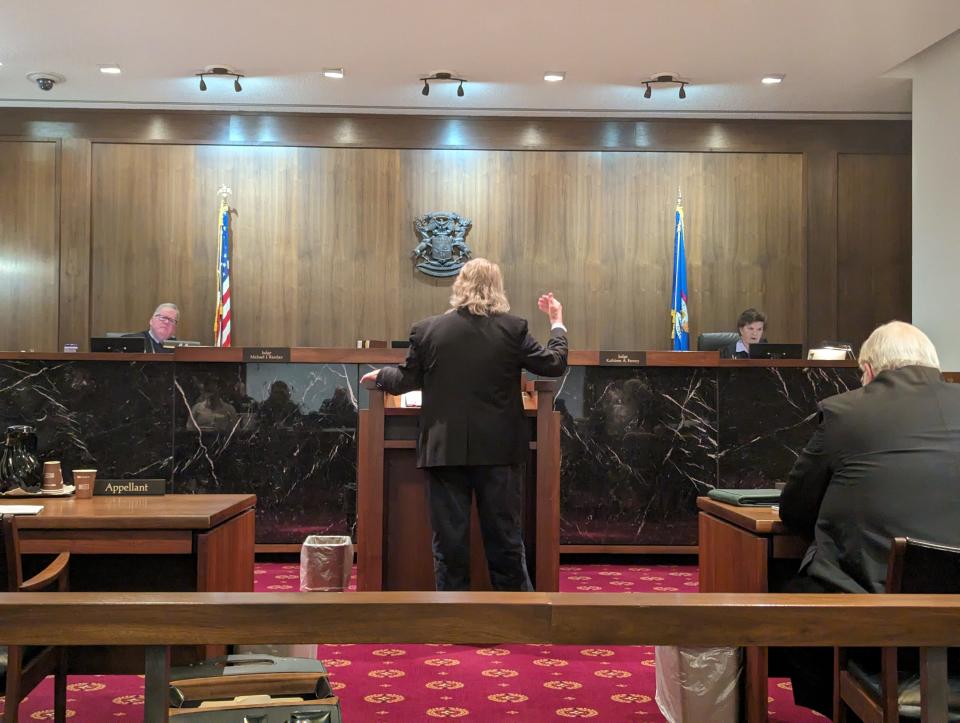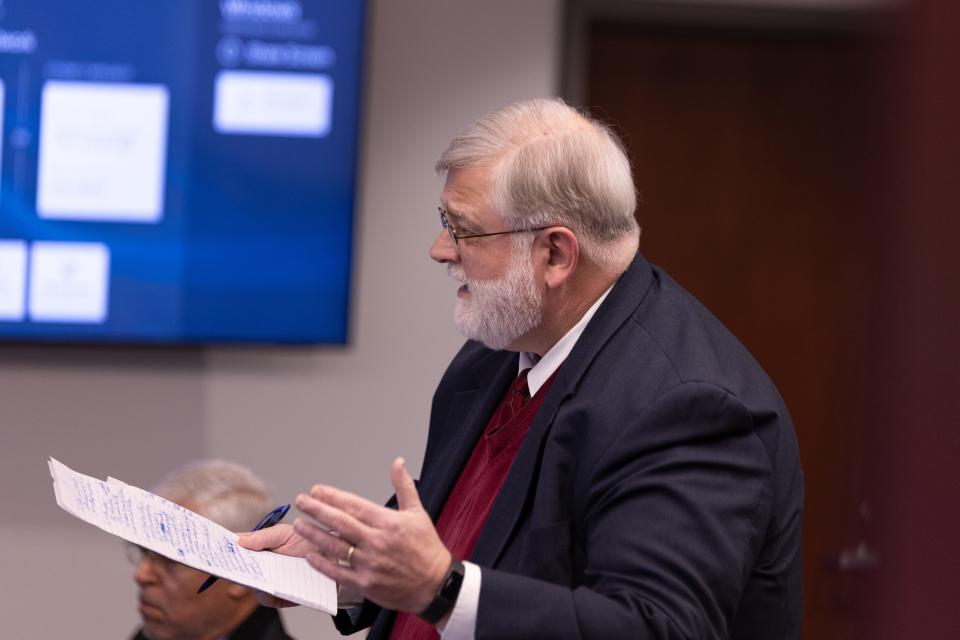Plaintiffs appeal OMA case against Ottawa County to Michigan Supreme Court
OTTAWA COUNTY — A lawsuit alleging incoming Ottawa County commissioners violated the state's Open Meetings Act in late 2022 is now with the Michigan Supreme Court.
The Michigan Court of Appeals unanimously ruled Jan. 26 that Muskegon County 14th Circuit Court Judge Matthew R. Kacel didn't make a legal error when he dismissed the lawsuit, filed in March 2023.
More: Court of Appeals hears arguments in Open Meetings Act violation suit
In the suit, plaintiffs argue the electees' first meeting on Jan. 3, 2023, was proof of a violation. During the meeting, commissioners backed by Ottawa Impact added several items to the agenda and took what seemed to be pre-orchestrated actions against the county administrator, health officer and corporation counsel — as well as dismantling the county's DEI Department.
Joe Moss founded the far-right fundamentalist group in 2021 after he took issue with pre-K-6 school mask mandates during the COVID-19 pandemic. He launched the political action committee under the premise of "defending parental rights" and to "thwart tyranny" within the state and federal government.
The plaintiffs — four county residents — argued Ottawa Impact electees were a de facto public body subject to OMA beginning Nov. 9, 2022 (the day after the general election) because, during that period, they constituted a quorum of the board and exercised governmental authority over county employees, even though they were not yet sworn into office.

The plaintiffs claim the commissioners "failed to inform the people of Ottawa County of the governmental decisions" they made between Nov. 8 and Jan. 3, their attorney Mark Brewer of Goodman Acker said early last year. "The people of Ottawa County were denied their right to petition the government."
Supporters of Ottawa Impact argue the commissioners weren't technically office-holders before Jan. 3, and therefore couldn't have violated OMA, even if they met or made decisions prior to taking office — including naming a chairman and selecting new counsel.
"You don't take a position or hold the power until you take the oath of office," board counsel David Kallman, of Kallman Legal Group, said early last year. "There are no de facto legislators. You are either in the position, or you're not in the position. Our clients had no authority or power to act prior to Jan. 3. This is an absurd argument."
In a written opinion July 14, Kacel agreed, saying an individual or group becomes a public body for the purposes of OMA "only when it is 'empowered' to exercise government authority or perform a government function by 'a state constitution, statute, charter, ordinance, resolution or rule.'"
Brewer appealed July 17.
He argued Wednesday, Jan. 3 — exactly one year after the meeting in question took place — in front of the Michigan Court of Appeals, saying Kacel erred because he made "fact findings" in his written opinion with no evidence taken into the record for him to rule on.
Brewer said the lower court should have allowed discovery — the formal process of exchanging information between the parties about the witnesses and evidence they will present at trial — and then ruled on the county's motion to dismiss.

"The judge didn't have any evidence on record — only our pleadings," Brewer said.
The judges presiding — James Robert Redford, Michael J. Riordan and Kathleen J. Feeney — acknowledged Brewer had a novel legal theory, but ultimately didn't agree.
On Wednesday, March 6, Brewer filed an appeal with the Michigan Supreme Court, arguing that if novel legal theories aren't allowed to be brought forward, state laws will never grow or evolve.
"The Court of Appeals simply ignored its own binding decisions that novel, fact-intensive legal claims should not be dismissed," Brewer wrote in the filing this week. "The law generally — and of open meetings specifically — will never grow to address new evasions of the OMA unless new legal theories can be asserted and tested in a factual crucible.
"There were no facts underlying the Court of Appeals decision on delegation, a de facto public body, or the enforcement of state constitutional rights. There were only factual assumptions."
Subscribe: Get all your breaking news and unlimited access to our local coverage
Cases appealed to the Michigan Supreme Court are filed as "applications for leave to appeal." The court "grants" only about a hundred applications. Typically, these are cases that involve interpretation of the Michigan Constitution, an important statute, or a point of law upon which the courts below are in need of direction, according to the court's website.
If the application is granted, the court would hear oral arguments, held the first week of each month from October to May. The earliest the case could be heard is October.
— Sarah Leach is executive editor of The Holland Sentinel. Contact her at sarah.leach@hollandsentinel.com. Follow her on Twitter @SentinelLeach.
This article originally appeared on The Holland Sentinel: Plaintiffs appeal OMA case against Ottawa County to Michigan Supreme Court

